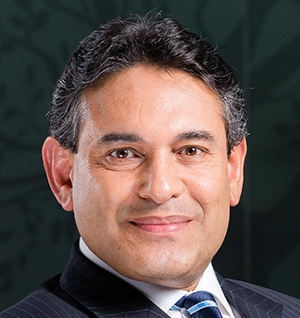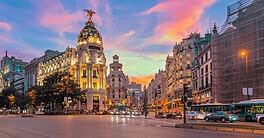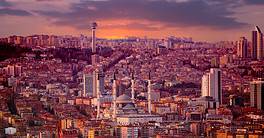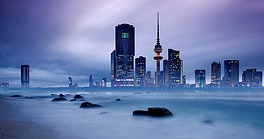Bank One CEO Ravneet Chowdhury tells Global Finance how Mauritius wins over investors with a secure stand-out investment climate.

Global Finance: Mauritius is often referred as a ‘paradise’. Is it one?
Ravneet Chowdhury: Mauritius is a model of economic success as well as political and social stability. Today, everyone’s eyes light up at the mere mention of Mauritius be it for its scenic beauty, warm hospitality or economic prowess. It is no mean feat for a small island of 1.3 million inhabitants to position itself on the global map and achieve global recognition on so many fronts.
GF: How does Mauritius woo investors?
Chowdhury: Mauritius is a well-established business destination for investors seeking a secure investment climate, a conducive business environment, political stability, transparent regulations, high value-addition and an efficient financial ecosystem. The country stands as an innovation driven and knowledge-based economy supported by a wide range of sectors that offer excellent business opportunities. The appeal and economic track-record of Mauritius exudes a sense of trust, stability and confidence.
GF: What makes Mauritius stand out despire competitiveness?
Chowdhury: The question which came to my mind when I first arrived in Mauritius, was: How did this small island nation which started off with a monocrop economy, vulnerable to terms of trade shocks, situated at considerable distance from the world markets succeed? I discovered it is a host of factors including political and macro-economic stability, respect for democracy, rule of law, human rights and a clear separation of powers between the executive and the judiciary. In terms of competitiveness and ease of doing business, there has been a concerted effort to emulate Singapore’s success story. Effectively, it meant a desire by policymakers to address the barriers to doing business.
GF: Can Mauritius be called a ‘tax haven’?
Chowdhury: Tax havens are no longer considered a desirable status for any country in today’s highly regulated world where income traceability and elimination of tax advantages are increasingly becoming the norm. Mauritius has been proactive in complying with the changing international regulatory framework and has consistently demonstrated a strong commitment to fight international tax avoidance and evasion. As an international financial center, it has maintained an environment of transparency, stability and predictability. The country has also undertaken a major reform of its fiscal policy to ensure alignment with the new global standards in preventing base erosion and profit shifting.
GF: What are the primary risks?
Chowdhury: Mauritius is a relatively low-risk investment destination. However, with an open economy and considerable reliance on imports, it is relatively exposed to the global economic environment. Other risk factors include social inequality, which remains at moderate levels but is increasing and adapting to the impacts of climate change.
GF: Talk about Mauritius companies extending into other African countries.
Chowdhury: Mauritian investments have made a tangible difference to the lives of people in Africa. With the recent establishment of the Mauritius Africa Fund as a vehicle to generate funds for the development of special economic zones in Africa, Mauritian investment on the continent is expected to expand rapidly. Looking at the financial sector, the years following the global financial crisis have seen rapid expansion of cross-border banking in Africa, a situation that has also been favorable for Mauritian banks.
GF: China and India have significant interests in Mauritius. Why?
Chowdhury: Fast increasing geopolitical presence, investment and trade relations between the two Asian giants and Africa are a well-known fact and, therefore, it comes as no surprise that China and India would both want to have a strong presence in Mauritius. India has dominated investment flows to Mauritius since it opened up as an offshore center 30 years ago. If India’s influence in Mauritius seems secure, China’s is also looming large because it is clear that Mauritius has a strategic role in China’s conquest of Africa’s growing market.
GF: Mauritius has been under the rule of political dynasties. Is this healthy?
Chowdhury: Mauritius has a stable, multiparty, parliamentary democracy where shifting coalitions are a feature of local politics. Whilst the consideration of ‘political dynasties’ may give the impression of an ineffective democratic system, one must acknowledge the current system has delivered peaceful political alternation in office, has stood as a barrier to totalitarian regimes and has enabled stable democratic processes and the rule of law which has been the foundation of the country’s economic success and social stability.



